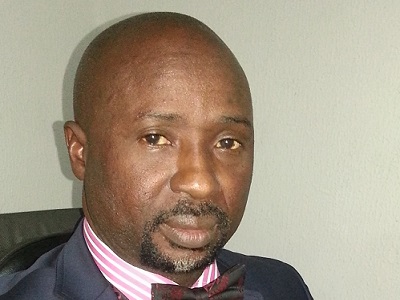General News
Courier Operators Want Banks, Others off Dispatch Operations

Courier operators in Nigeria are not happy with the encroachment on their professional jurisdiction by banks, e-commerce and multi-national corporations running parcels’ dispatch services, Nigeria CommunicationsWeek can report.
The operators have therefore called on the federal government to order financial institutions and other institutions engaged in dispatch operations to stop immediately.
But Dr. Simon Emeje, senior assistant postmaster-general (SAPMG) and head of the Courier Regulatory Department (CRD), told Nigeria CommunicationsWeek, that government was working assiduously to stem the tide.
Lara Okuneye, vice president, Association of Nigeria Courier Operators (ANCO) said that commercial banks and on-line retailers are most culpable in the act.
“The first thing is education. If individuals were educated that it’s unlawful to take your parcel to commercial motor garages to send to your natives, it would increase the volume of our operations. There are so many porous channels that courier jobs are been mismanaged. In other countries, like in China, you dare not buy something online and the same company will be the one to deliver to you, especially when they are not registered.
“But in Nigeria, the courier has been abused. Restaurants abroad partner courier companies to deliver food to the customers. In Nigeria, online retailers came up and they mounted boxes on bikes delivering items to the door-steps of customers without recourse. Banks are not left behind. Today, it is a booming phenomenon among multi-national companies”
She said that the passage of the National Postal Bill will address the matter.
“That is why we are clamouring for an Independent Commission for the industry. CRD cannot handle the overwhelming challenges, especially when they are ill-equipped. How many vehicles do they have for monitoring? And government may have shied away from strengthening the workforce hence they could not see the relevance of the department, and consequently the industry,” she added.
Commenting on the development, Emeje said that the CRD has reached out to some e e-commerce sites, adding that the CRD was not aware of any bank that engages in courier/dispatch operations.
“We feel the pulse of operators’ heartbeats and we are not relenting in ridding the sector of unwanted acts. We have approached some of the e-commerce retailers to come and register. And they are responding,” the CRD boss said.
General News
Nigeria to Launch 4 Satellites for Surveillance, Others

Federal Executive Council (FEC) has approved the launch of four satellites aimed at strengthening Earth observation capabilities and improving national security, according to Uche Nnaji, minister of Innovation, Science and Technology.

Uche Nnaji, minister of Innovation, Science and Technology
Speaking at the 22nd National Council on Innovation, Science and Technology (NCIST) in Abuja, Nnaji said the satellites include three Earth Observation models and one Radar Aperture satellite. The council meeting was held from 12 to 14 May under the theme: “Research, Develop, Innovate and Commercialise: A Cycle for National Prosperity.”
“Just last week, the Federal Executive Council approved that Nigeria launch four satellites—three Earth Observation satellites and one search satellite,” the minister said.
According to him, the Radar Aperture satellite will be capable of capturing images under various conditions, including nighttime and rainfall.
“The search satellite is the one that will pick images both day, night, during rain, every time of the day, and that is technology in play. The military can use it effectively,” he said.
Nnaji noted that this will reduce Nigeria’s reliance on purchasing data and imagery for monitoring remote areas like the Sambisa forest.
On policy development, he said an inter-ministerial committee is reviewing the National Science, Technology and Innovation Policy and working on establishing a National Research and Innovation Fund.
“As a country, we can no longer afford to ignore the widening gap between research and real-world impact,” Nnaji said. “For decades, valuable research conducted in our universities and institutions has remained underutilised, disconnected from industries and policy.”
He pointed out the challenges faced by young innovators, including a lack of structured support and financing to transform ideas into marketable products.
“Let this 22nd edition of NCIST mark the beginning of a new chapter, one where every research has a roadmap to industry,” he said.
Nnaji called for sustained efforts from researchers, private investors, and regulators to ensure innovations are protected and supported. “The government must build and enforce regulatory frameworks that protect, support, and incentivise innovation at every level,” he added.
He said the council’s resolutions would be forwarded to FEC for formal adoption and reaffirmed the ministry’s plan to restore the council’s annual meeting schedule after delays pushed the 22nd edition into 2025.
Esuabana Nko-Asanye, the ministry’s permanent secretary, described the meeting as a platform to promote inter-sectoral collaboration and address challenges such as insecurity, unemployment, and climate change. She said 109 memoranda were presented, highlighting proposals on issues like commercialising research, boosting funding for innovation, and building capacity in emerging technologies.
“The richness and diversity of these submissions underscore the growing recognition of science, technology and innovation as a cornerstone of Nigeria’s sustainable development,” Nko-Asanye said.
George Akume, secretary to the Government of the Federation, represented by Morris Mbaeri, said building a resilient innovation ecosystem is key to national development. “This cycle is very essential in addressing real-world challenges and unlocking long-term prosperity,” he said.
Azikiwe Onwualu, president, African University of Science and Technology (AUST), urged the government to increase research and development spending to 3% of GDP and proposed the establishment of more RDIC clusters that integrate academia, industry, and startups.
He said: “We should operationalise the National Research and Innovation Council Fund to coordinate RDIC efforts as envisaged in the STI policy.”
General News
Shell Reports 122 Percent Surge in Oil Spills from Nigerian Operations in 2024

Shell Plc has reported a significant 122% increase in operational oil spill incidents in Nigeria in 2024, driven largely by equipment failures and persistent sabotage, according to its newly released 2024 Annual Report and Accounts.

The company’s Nigerian subsidiary, the Shell Petroleum Development Company of Nigeria Limited (SPDC), which operates the SPDC Joint Venture (JV), recorded 20 oil spill incidents exceeding 100 kilograms during the year up from just 9 incidents in 2023.
The report attributed the surge in operational spills primarily to defective pipeline clamps.
These clamps, which were locally manufactured and used in pipeline repairs after the removal of illegal connections, were found to have factory faults.
Shell confirmed that the manufacturer has since recalled the faulty batch, and SPDC has begun replacing the affected components.
As a result, the volume of operational oil and product spills spiked to 0.37 thousand tonnes, compared to just 0.005 thousand tonnes recorded in the previous year.
Two major spills one onshore along the Trans Niger Pipeline and one offshore at a terminal loading buoy accounted for 89% of the total volume.
SPDC JV has said it is implementing a comprehensive pipeline maintenance and replacement program aimed at reducing such incidents in the future.
Beyond equipment failures, Shell identified third-party interference and crude oil theft as a continuing challenge, noting that 81% of spill incidents in 2024 were caused by sabotage.
There were 84 theft- or sabotage-related spills totaling 2,000 tonnes of crude oil in 2024, compared to 139 such incidents amounting to 1,400 tonnes in 2023.
While the number of incidents declined, the volume spilled increased, indicating that larger-scale breaches may have occurred despite improved surveillance and protection measures.
Shell’s report highlighted ongoing efforts to combat vandalism and protect infrastructure.
The SPDC JV continued to deploy aerial surveillance, drone monitoring, and on-ground patrols to detect and respond to illegal activities and spills more rapidly.
Key anti-theft protection measures were further enhanced in 2024, including:
Reinforced wellhead and manifold cages
Use of anti-theft nuts
Upgraded CCTV systems and networking technologies
In addition, Shell reported ongoing collaboration with Nigerian government security agencies to maintain surveillance and secure the pipeline network and operational areas.
“SPDC JV continued to work closely with authorities to address third-party interference, particularly along our pipelines,” the report stated.
Shell reiterated its commitment to reducing environmental impact through proactive infrastructure upgrades and improved response systems, while also calling for stronger enforcement against crude oil theft and pipeline vandalism issues that have plagued Nigeria’s energy sector for years.
General News
NOTAP Urges South Eastern Entrepreneurs to Embrace Franchising as Business Model

Dr. Obiageli Amadiobi, director general and chief executive officer, National Office for Technology Acquisition and Promotion (NOTAP), has advocated Franchising as a sustainable business model for the South East entrepreneurs.

Dr. Obiageli Amadiobi, DG/CEO, NOTAP
She made this call during a one-day sensitization and unveiling of the NOTAP Franchising Guidelines for south east stakeholders and entrepreneurs for a successful franchising business.
The DG who was represented at the event by Mr. Emeka Orji, head of Department Corporate Planning (CP) Department, NOTAP, said that franchising business model had globally been proven to be successfully sustainable due to low business risks associated with it.
She defines franchising as a contractual business relationship between a licensor (the franchisor) and a licensee (the franchisee) that allows the business owner to use the licensor’s brand and methods of doing business to distribute products or provide services to consumers.
She added that in essence, the franchisee pays the franchisor for the opportunity to use his established business model and brand name in running his business.
Dr. Amadiobi said the essence of the workshop was not just organised to explore the possibility of adopting franchising as a strategic platform to transform local dreams into national and global business realities.
She described the programme as an opportunity for business owners and intending entrepreneurs from the Zone to latch into the huge and untapped potentials provided by franchising business models in becoming business and brand ambassadors.
With over 800,000 franchise establishments across the globe, generating trillions in revenue, she described Franchising as a pathway to economic empowerment.

 E-Financial2 days ago
E-Financial2 days agoAccess Holdings Sets Benchmark in Fraud Prevention With ₦193.5Bn Tech Investment

 E-Financial2 days ago
E-Financial2 days agoMTN’s Digital Lending Arm Disburses $592m Loans in Q1

 E-Financial2 days ago
E-Financial2 days agoAccess Bank, Deloitte Partner to Equip SMEs with Tools for Growth

 News2 days ago
News2 days agoSERAP Asks Ojulari, NNPC CEO to Account for Missing N500Bn or Face Legal Action

 E-Financial2 days ago
E-Financial2 days agoFG Verifies 2m Households for Cash Transfer

 E-Business2 days ago
E-Business2 days agoFG Launches Online Citizenship, Business Management Platform

 Telecom2 days ago
Telecom2 days agoEquinix Expands Digital Footprint in Nigeria with Launch of LG2.3 Data Center

 General News2 days ago
General News2 days agoNOTAP Urges South Eastern Entrepreneurs to Embrace Franchising as Business Model
























